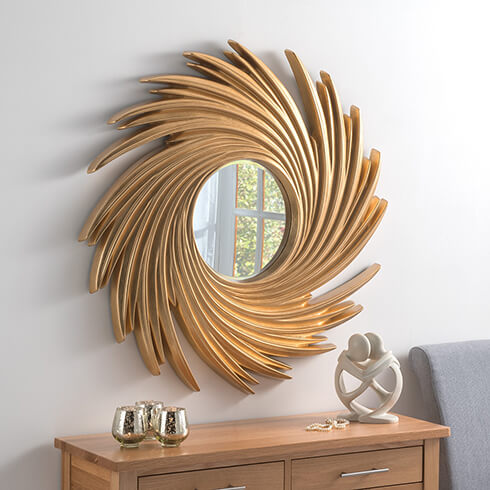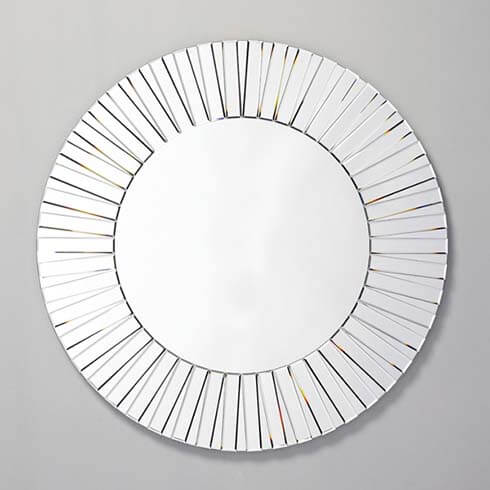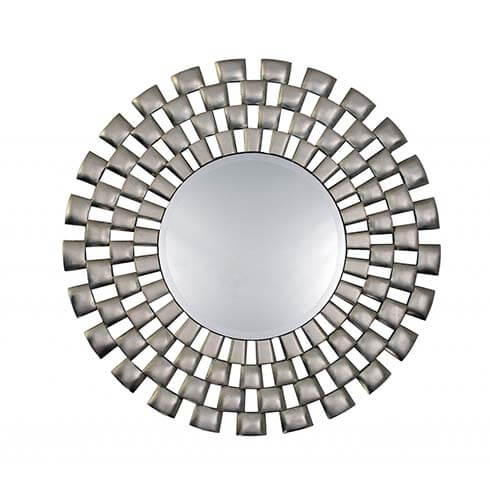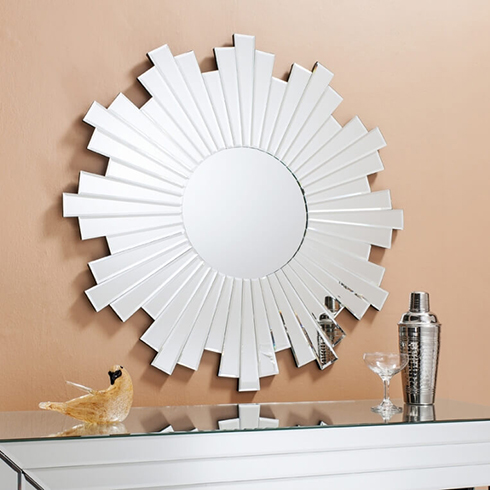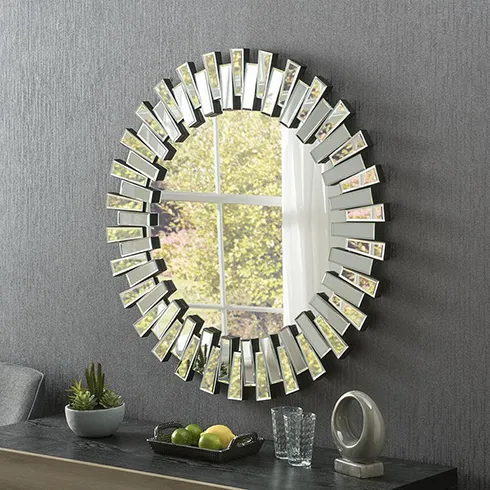
Sunburst Mirrors
Sunburst mirrors usually have a circular shape and feature a design that radiates from a central point to mimic the shining sun's rays. They offer a burst of character and warmth to any room. The eye-catching detail in their designs makes them more than just a mirror; they are a decorative piece of art as well. You would find a sunburst mirror in a range of interior styles, from a traditional or classic look to a highly contemporary space. But where did this glorious trend begin? As with many home decor features that we now love, and which seem to be wholly modern, there is a long and rich history behind the sunburst mirror.
The History of the Sunburst Design
The sunburst, or sometimes known as starburst, mirror has many design precursors. The sun has been a powerful symbol over time, across religions and cultures. It often represents strength, life and energy.
We might look to that most grand of 17th century designs, the Palace of Versailles, for one such example. If you look at the gates of this palace, you will see an Apollo sun mask worked into the design, as this was Louis XIV's personal emblem.
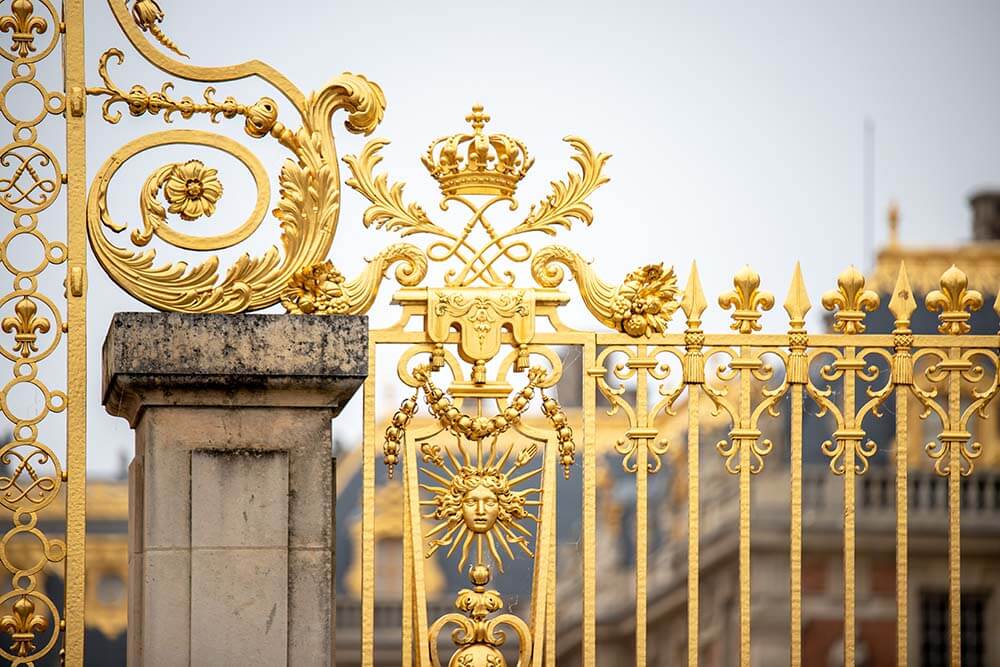
There is evidence, though, that it goes back much further than that. Not only are there signs that the Apollo sun mask was known to be depicted in decorative form in gates and Churches, but there are indications that there actually were decorative mirrors with these sun flames or rays circling the frame many years ago - and in domestic spaces!
For example 'The Arnolfini Portrait', painted in 1434 by Jan van Eyck, shows a mirror on the back wall of a home which has a frame design we might be very familiar with. Though this is is not a depiction of the most intricate and complex of sunburst mirrors, the very presence of what seems to be a more basic precursor shows that this is a style which has been around for potentially up to 600 years.
How Best to Use a Sunburst Mirror in Your Home
There is practically no end to the kinds of approaches you can have to the sunburst mirror at home. If you have a large sunburst mirror, you might want to place it more or less on its own, as it will be doing more than enough work to act as a striking focal point. In this way, placing one above the head of the bed, above the fireplace, or on an otherwise bare area of wall in the kitchen or hallway would work a treat. If you want to give your dining room a distinctly impressive and stylised look, then a large golden sunburst mirror on the wall will set the tone perfectly.
Large sunburst mirrors do not always have to placed on their own, though, as you can also position them in the middle of a collection of pictures on the wall or together with other items that compliment them. Their generous, outward reaching and round design lends itself to having a central position. As the sunburst details point outwards, they might be used to direct the eye towards a surrounding set of photos or small pieces of art up on the wall.
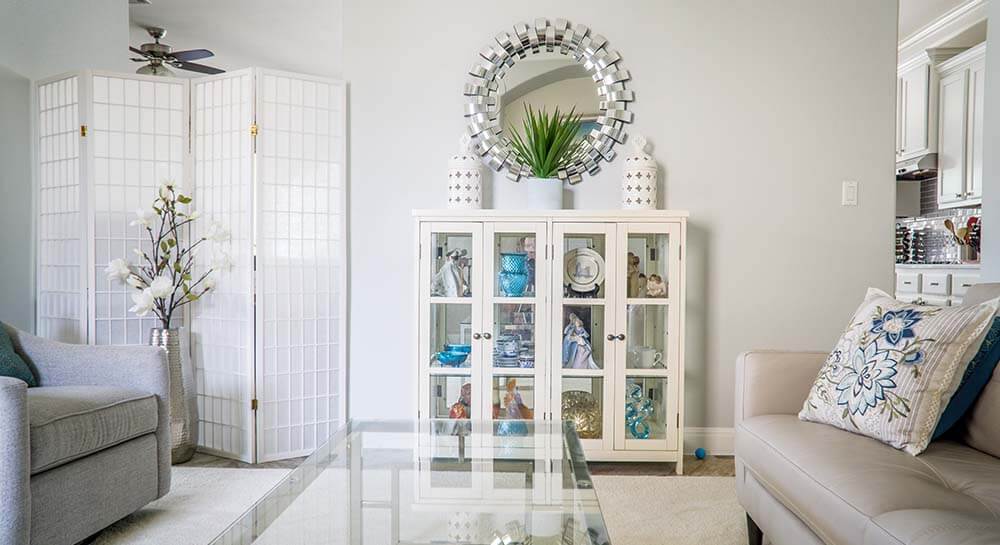
Sunburst mirrors do come in a variety of sizes. You can also go for smaller ones which, whilst still beautifully ornate, are not dominating in size and so would work well in odd numbers such as a set of three. Place them in a rows or columns and you will have a lovely reflective touch and a clear point of interest in just about any room.
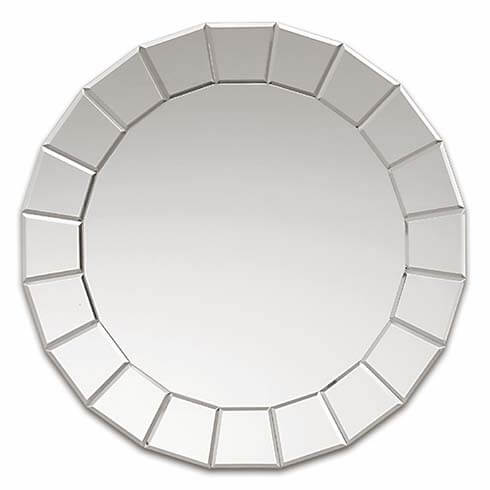
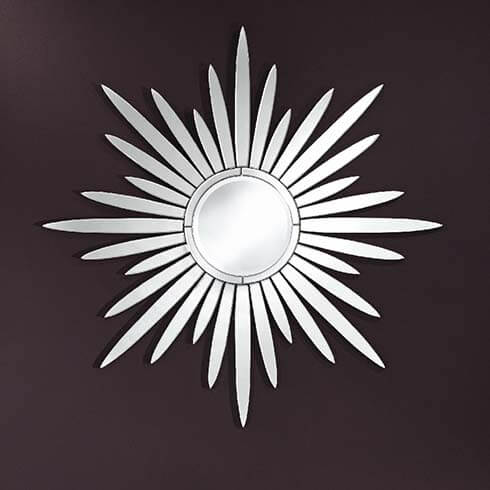
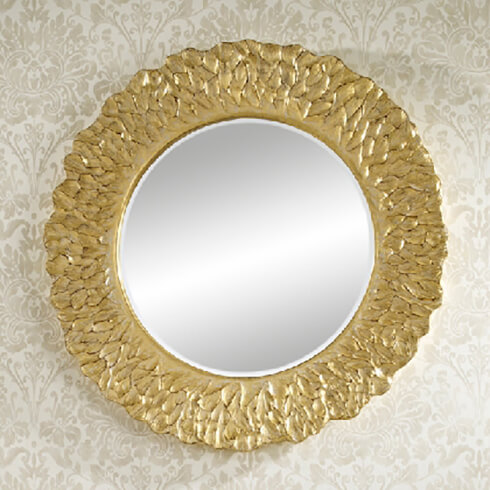
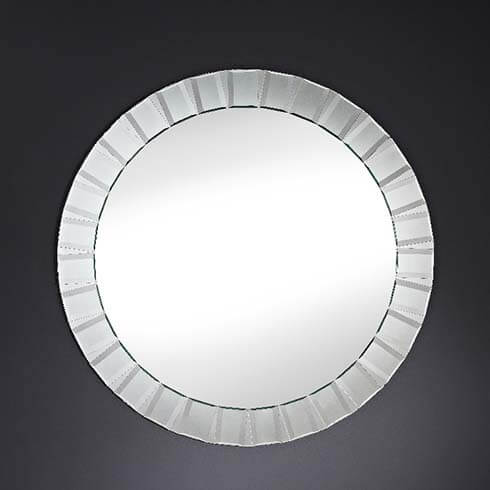
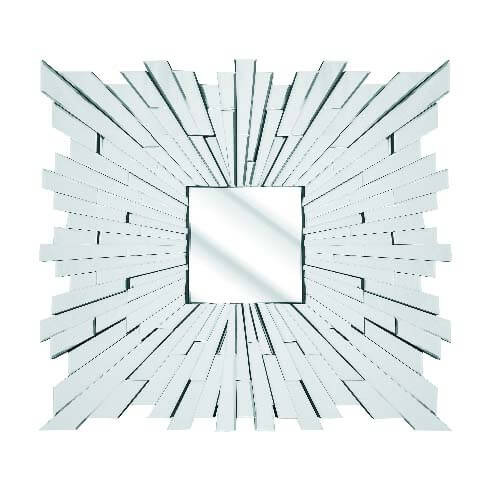
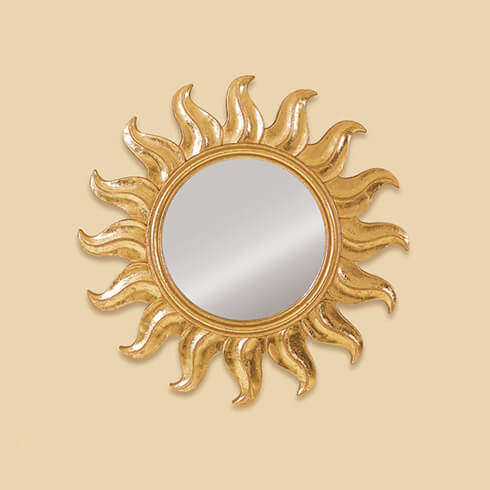
Buy Sunburst Mirrors at Mirror Shop
We have a fantastic collection of sunburst mirrors for you to choose from, so do explore all the styles that are available. In particular we would recommend our selection of high quality frameless sunburst mirrors such as those by Deknudt Mirrors. They contain all the intrigue of the classic sunburst, but use the mirror itself to evoke the circling sun beam design. In this way, the reflection comes into play as part of the charm of the sunburst shape.
Zamora also offer a thrilling take on the frameless sunburst mirror look by giving it a modern, geometric-style twist. These are the kinds of designs which it is fascinating to think have a connection all the way back to the 15th century and perhaps beyond. And yet they provide the distinct quality of our current age's iteration of the classic style.

